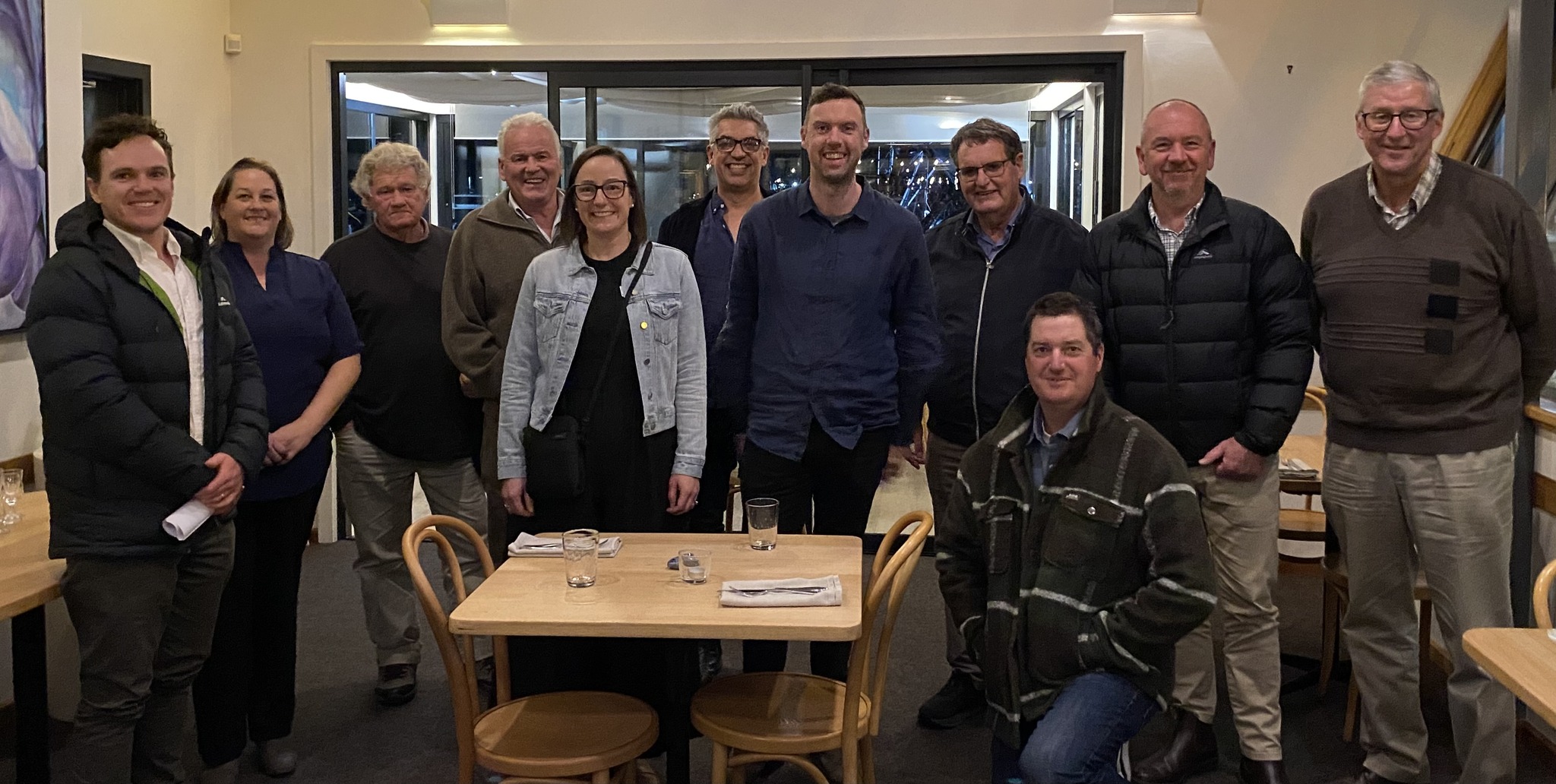This week, we welcomed Tom McIntosh MP, Member for Eastern Victoria, for a two-day visit to advocate on behalf of the region's agriculture and commercial fishing industries.
Mr McIntosh's visit began in Hinnomunjie, north of Omeo, where he met with farmers facing prolonged dry conditions. He later attended a community afternoon tea at Benambra Recreation Reserve, hosted by Benambra Neighbourhood House, alongside Council representatives and Agriculture Victoria staff.
More than 30 residents attended the gathering to share their concerns directly, raising issues such as the need for road upgrades (particularly Corryong Road), on-farm productivity incentives, the cost burden of the Emergency Services Volunteers Fund (ESVF) levy, feral animal (deer, pigs and wild dog) management, and better grant access for smaller farming enterprises.
That evening, Council supported a commercial fishing industry dinner in Lakes Entrance, where representatives shared insights into the sector's history, current challenges, and its critical role in the regional economy. Key discussion points included proposed offshore wind developments, their impact on fishing grounds, and the need for a community benefit fund that reflects potential local impacts.
On his second day in East Gippsland, Mr McIntosh had breakfast at the Gippsland Agricultural Centre in Bairnsdale, where Council facilitated discussions with the Agriculture Sector Advisory Committee and industry leaders. The group focused on regional workforce pathways, weed management (particularly African Lovegrass), and the need for practical support programs that improve long-term productivity.
The visit to the region concluded with a tour of Bulmer's Farms in Lindenow, where Mr McIntosh learned about their adoption of new technology including a laser-weeder and the efficiencies it is bringing to operations, as well as their export-quality produce and the scale of East Gippsland's contribution to the national food supply.
Mayor Cr John White said the visit was a productive opportunity for Council to amplify the voices of local producers, ensuring policy and funding responses reflect conditions on the ground.
"These conversations are essential. The people living and working in these industries are best placed to identify what's needed either right now or in preparedness for the future whether that's infrastructure investment, policy reform, or stronger protections for working environments like land and sea," John said.
"As a Council, we're listening closely, and we're taking those insights directly to government. It's about more than just sharing information; it's about shaping better outcomes for the region."
Council will continue to work closely with state and federal partners to advocate for the support, funding and recognition that East Gippsland's primary industries need to thrive.
The visit, which included site tours, roundtable discussions and industry engagement, was part of Council's ongoing efforts to ensure the lived experiences of local people are heard by state decision-makers.
.jpg)
.jpg)







